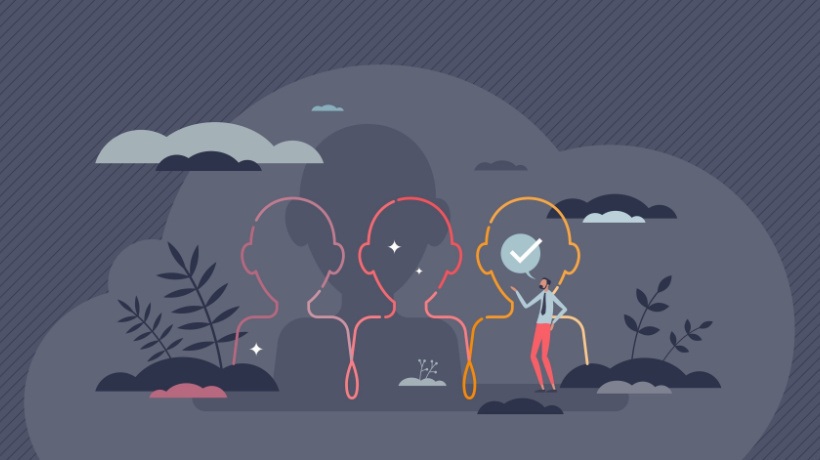Create A Sense Of Community And Belonging
Work is a major social structure for a lot of people. And many of them look to their careers for purpose, not just a paycheck. Through their work, they search for connection, community, and belonging.
Creating that sense of belonging at work is critically important to building a workplace that works for everyone.
It encourages collaboration, mitigates exclusion, and values individuality as a way to drive outcomes. Research shows that fostering belonging at work plays a fundamental role in employee engagement, which corresponds to greater on-the-job effort, more intent to stay, and higher employee performance. [1]
But, in order to make work a place that works for everyone, we need to recognize that our colleagues have life and work experiences that are different from our own. And that by working to understand the social issues that create the need for diversity, equity, inclusion, and belonging (DEIB) strategies, education, and commitment, we can engage in meaningful conversations that make work better for everyone.
Communicating about DEIB isn't just a social skill; it's a professional skill.
But There Are Barriers To Engaging In DEIB Conversations
As important as DEIB conversation skills are, it can be difficult to engage in these discussions.
It's a challenge to understand when, where, and how to do it because, if we're being completely honest, we often hide parts of ourselves at work. We may even censor ourselves to avoid "rocking the boat" or saying the wrong thing. Some organizations may even institute policies to ban these conversations outside of formal employee education protocols. [2]
But ignoring or avoiding these conversations won't change the fact that social and political change and uncertainty affect people across their lives and can introduce distraction, disruption, and division into the workplace.
And while DEIB training can and does help, it's often reactive and compliance-focused, lacking tactical approaches for engaging in these conversations and initiating change.
There is no perfect playbook for engaging in DEIB conversations, but providing a model to guide people can certainly help. And it's what our latest Cornerstone Originals learning series, A Seat at the Table, is designed to do.
Using Authentic People And Conversations To Model Uncomfortable DEIB Conversations
A Seat at the Table offers an innovative approach to DEIB training.
Across eight courses, the series features unscripted, meaningful conversations about important DEIB topics, such as how to talk about pronouns, racial discrimination, depression, and more.
Here's what makes A Seat at the Table different from the typical DEIB training experience:
- It uses an unscripted format with real people—not actors—sharing their experiences and perspectives
- It explicitly demonstrates how workplaces bring together people of different backgrounds and perspectives
- It shows both the telling and listening that's necessary to appreciate the diversity of experiences in the workplace
Through watching onscreen conversations, learners can better understand these social issues and why they're present at work. And to help put their learning into practice, each episode is accompanied by supplemental materials for managers full of tips to lead these conversations and create more inclusive environments.
Framing DEIB Learning Around A Conversation Is Empowering
By learning what DEIB and topics related to it mean to real people, we can better understand the critical roles we play in fostering DEIB in our workplace.
Yes, talking about these issues can often be uncomfortable and weighted with emotional associations, but they're necessary to ensure we're truly creating a work experience that works for everyone.
It's not about bringing people together to disagree. It's about nurturing human connections that foster more inclusive behaviors. Engaging in these conversations is a professional skill. One that you can help your people develop.
Let Us Know How We Can Help
A Seat at the Table can demonstrate your actionable commitment to DEIB and to creating a safe space for employees to bring their true selves to work.
Because this learning content centers on developing competency in holding these conversations, A Seat at the Table is most impactful when incorporated with other DEIB training, like our four Cornerstone Content Anytime subscriptions:
- Professional Skills
- Leadership & Management
- Compliance
- Diversity, Equity & Inclusion
If you're interested in learning more about A Seat at the Table and how our broader content offerings can support your people and organizational goals, reach out. We'd love to discuss how we can help.
References:
[1] 3 Ways to Build a Sense of Belonging in the Workplace
Author
This article was penned by Doug Segers.










